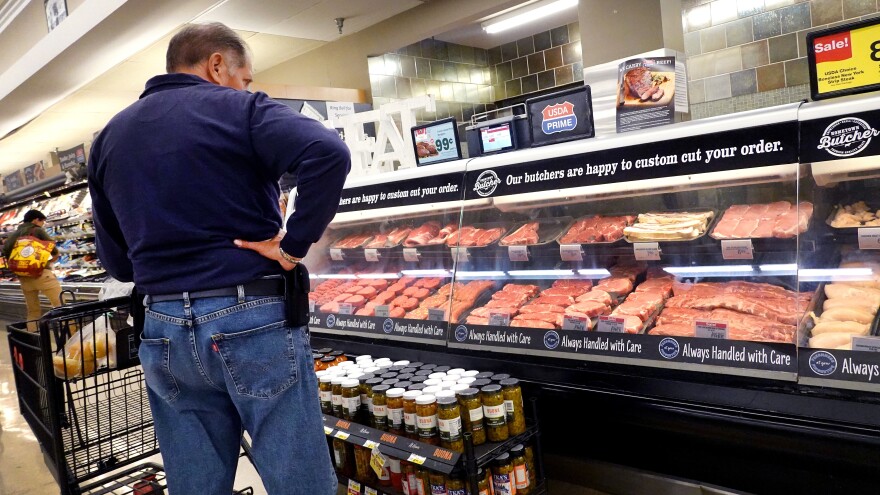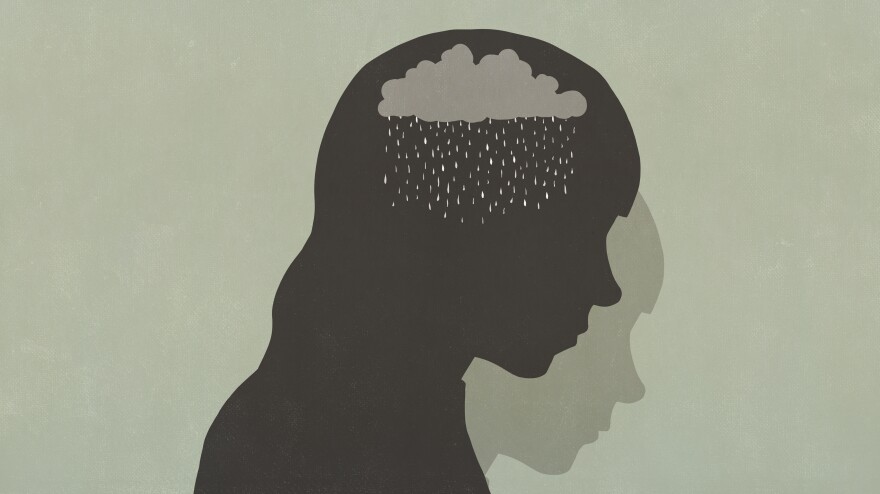Good morning. You're reading the Up First newsletter. Subscribe here to get it delivered to your inbox, and listen to the Up First podcast for all the news you need to start your day.
Today's top stories
Texas Gov. Greg Abbott signed a bill yesterday that makes entering Texas illegally a state crime. The law, which takes effect in March, will give state and local law enforcement the authority to arrest migrants suspected of crossing the border from Mexico. It will likely be challenged, as federal law already makes it illegal to enter the U.S. without permission.

- Gov. Abbott says the Biden administration isn't doing enough to enforce existing federal law, Julián Aguilar, a reporter at the NPR network's Texas Newsroom, says on Up First. Legal experts he speaks to push back, arguing that issues like abortion and gun control can be state issues, but immigration is a federal issue because it involves cooperation with other countries. Advocates worry the new law will erode people's civil rights and specifically target mixed-status families, where at least one member is undocumented, and the rest are U.S. citizens.
Pope Francis issued a declaration yesterday allowing Catholic priests to bless same-sex couples. The document made it clear the blessing would be for the couple, not the same-sex union. Marriage within the church remains exclusively between a man and a woman.
- Reaction from Catholics has been mixed, reports Deena Prichep for NPR. Marianne Duddy-Burke, who leads the Catholic LGBTQ+ rights organization Dignity USA, tells Prichep it's a "significant milestone" in a "long journey to full equality." Rev. Gerald Murray of the Holy Family Church in New York City calls the decision a "disaster because the church is changing the way it approaches mortal sin."
Disability advocates are concerned a U.S. Census Bureau's proposal to change the disability questions on its annual American Community Survey, as well as how it reports the results, could skew the government's official disability statistics. The proposed revision would change yes-or-no questions, like whether a person has "serious difficulty" with an ability, to ask a person to rate their level of difficulty. Those who report "A lot of difficulty" or "Cannot do at all" will be included in disability estimates. People who report "Some difficulty" would be left out. Advocates say this might make it harder to provide access to housing and health care to disabled people, enforce legal protections and prepare communities for emergencies.
Deep dive

Inflation has cooled in recent months. But many are still unhappy with the price of groceries and services. Here's why things still feel expensive, even though the economy is doing well:
- Falling inflation, or disinflation, means prices are rising more slowly. What many people want to see, however, is "deflation," when prices actually come down. Deflation could be a symptom of economic stress.
- Deflation is not the Federal Reserve's target. The central bank prefers prices to rise slowly enough that it doesn't worry consumers.
- Average wages have risen faster than prices for the past seven months, which may help things feel less expensive.
Life advice

The holiday season can be complicated for people experiencing grief and loss. Michelle Palmer, executive director of the Wendt Center for Loss & Healing, has advice for navigating this time of year.
- Recognize your grief style. Intuitive grievers show it through their emotions, while instrumental grievers channel it through doing things like 5k races and fundraisers.
- Avoid miscommunication and feelings of judgment by recognizing when your grief style might not match with a loved one's.
- Think about whether you want to participate in old traditions to honor the people you've lost or if it's too soon.
3 things to know before you go
- Gen Z is obsessed with a plush version of Snoopy wearing a striped hat and blue coat. The $15 toy is selling on eBay for as much as $100.
- Looking to buy a new Apple Watch for Christmas? Act fast. The company is pulling two of its newest models off the shelves this week after losing a dispute over whether it illegally copied another company's patent for a blood oxygen sensor.
- Actor Jonathan Majors has been found guilty on two of four charges in a domestic violence case related to an incident with his ex-girlfriend. Disney, which had been priming audiences for a Marvel Cinematic Universe film starring Majors, has dropped the actor.
This newsletter was edited by Majd Al-Waheidi.
Copyright 2023 NPR. To see more, visit https://www.npr.org.



